Television & Film Production BA(Hons)
Develop your unique craft in storytelling through television and short film production.
Course overview
This degree underwent a name change in 2024. It was previously known as Television BA(Hons).
Develop your authentic voice through moving-image storytelling, whether you aspire to create high-end drama with full-scale crews, meaningful documentaries, music videos, commercials or new forms of content – investing in the story and understanding why you’re telling it. You’ll learn by doing, gaining hands-on experience in areas including cinematography (camera and lighting), producing, directing and sound. You’ll build expertise in scriptwriting for short film and TV serial drama, editing, analysis and critical thinking, empowering you to create work that is artistically and technically inventive.
You will:
- Learn from award-winning staff and industry experts. Recent masterclasses and visiting professionals include Distinguished Professor Mark Jenkin (Enys Men), graduate Daisy Allen (Camera Loader, No Time to Die), Tom Morgan (Head of Client Services at ENVY Post), Ben Coren (Development Executive at Film4), and Johnie Burn (sound design for Nope, Zone of Interest)
- Collaborate in teams to create original content while gaining hands-on experience in various production roles, including director, sound designer, script supervisor, or cinematographer.
- Have the opportunity to work in-house through our production centre, the Sound/Image Cinema Lab. Previous productions include Film4’s Rose of Nevada (Mark Jenkin, 2025), Long Way Back (Simon Harvey, 2022) and Wilderness (Justin Doherty, 2021)
- Attend technical workshops, led by experienced professionals, offering training on specialist industry-standard equipment and software; such as technical and creative use of the camera and visual storytelling, sound design in Pro Tools, picture grading in DaVinci Resolve, and lighting techniques such as 3-point lighting
- Study in a facility that’s part of the ENVY Academy for post production and CILECT, the global association of the world’s best film, television and animation schools – on a course accredited by ScreenSkills, the industry-led skills body for the screen industries
This Television & Film Production degree is industry recognised by ScreenSkills, the industry-led skills body for the UK's screen-based industries, and carries the ScreenSkills Select quality-mark which indicates courses best suited to prepare students for a career in the screen industries.

Course details
On this Television & Film Production degree, you'll have the opportunity to gain a BA(Hons) degree over three years or the option to study Television & Film Production BA(Hons) with an Integrated Foundation Year and/or professional placement study options.
Learning in our industry-standard Albert, AVID and ARRI accredited production and post-production facilities, you’ll grow your technical excellence and creative flare to produce moving image work with impact, relevance and reach. Working in teams that mirror professional production crews, you’ll learn how to create and negotiate with others in a collaborative environment that strives towards inclusivity and emotional intelligence. By the end of the Television & Film Production degree, you’ll be able to walk on set with a clear understanding of set etiquette, key roles, and the process of making, with the skills play a valuable part in the production process.
In the first year of your degree, you will explore your place as a creative and critical practitioner and develop your creative voice and artistic expression through the crafts of screenwriting, cinematography (camera and lighting), sound (recording, design and audio-post) and post-production (editing and finishing). You will consider the background context and conventions of the television and film industry and how this will inform your own making. Building on what you’ve learnt, you’ll collaborate in small teams to produce documentary and drama outputs. Through this process, you’ll take on key roles within a production crew, honing your communication and teamwork skills. You will consider your sense of belonging and how to be increasingly aware and inclusive of the perspectives of others when producing moving image work.
Modules
Discovery
This module will establish you as a creative practitioner and you’ll be introduced to the craft skills of camera, sound, lighting and editing that are central to the development of your creative voice and to successful scriptwriting and filmmaking practice.
Backdrop
You’ll be introduced to the key critical approaches and industrial milestones in the study of television and film production. You’ll develop your ability to innovate, reflect and create based on your emerging critical understanding of television as a site of cultural, political and industrial anxiety, control and progress around the world. You’ll also explore how television can directly influence discourses about national identity, citizenship, race, gender and sexuality.
First Positions
Building on the foundation of craft documentary storytelling and industry context from the first study block, you will work in production teams to produce a short drama scene. You’ll critically evaluate the dramatic possibilities of a script and filming space as well as explore the core approaches of narrative storytelling.
You will develop skills in eliciting performance and managing a set. You’ll put into practice cinematography, sound and post-production skills by adopting key roles within a production crew, such as director, cinematographer, sound recordist and first assistant director. This process will be underpinned by the exploration of the conventions, codes, uses and meaning of genre within television.
Represent
In this module, you will work on a documentary project where you’ll develop ideas, find stories and characters and use creative and technical storytelling conventions.
Working within industry-standard health and safety, editorial and diversity guidelines, you’ll learn how to deal sensitively with your contributors and explore how participating in documentary might be experienced by those being documented.
Building on the skills learnt in your first year, you’ll further develop your creative voice, specialist skills and your ability to collaborate effectively and sensitively. You will start to focus on particular areas of interest such as, cinematography, screenwriting, sound, producing, production design, and post-production. You’ll further develop your collaboration and teamworking skills by working in groups and filming on location to produce a number of original projects, such as short film, documentary, live-briefs and more.
You will develop an understanding of the marketplace as a working professional and how to seek funding, find an audience, and build greater acclaim. You will also explore a research topic of your choice to develop into your third year.
Modules
Artistry
You will delve into the subtleties of visual, sound and editorial interpretation. Through a series of lectures, seminars and workshops, you’ll understand how the different craft and creative elements of industry practice work together to create the art that is screen media. You’ll then choose from a number of pathways to specialise in, such as cinematography, screenwriting, sound, producing, production design, or post-production.
Blue Skies
You’ll discover the business behind television and the role that audiences have in this sector. You’ll question how the current industry landscape may influence your future career and the need to embed diversity and inclusion into your work. You’ll explore how programmes are marketed and sold and learn industry marketing methods that can be deployed in your own projects and career.
Impact
You’ll grow your skills in your chosen pathway, from the conception of creative ideas, through project development and production to delivery of outputs such as short film, documentary and screenwriting. You will explore what makes stories compelling and how to develop, write and produce content that can make a difference.
Inception
This module encourages you to challenge conventions in the study and practice of television by developing your knowledge of research practice and skills. You’ll develop your own research project proposal which will reflect ethically on current academic research and critically analyse screen cultures and/or industries. By engaging with research practice and methods, you’ll develop the skills necessary to be both a reflective and critical practitioner within media.
You can choose to take an optional professional placement after your second year on a three-year programme, or after your third year if you’re studying for a degree with an Integrated Foundation Year.
You’ll be responsible for finding your own placement, with support from the Employability team.
Choosing this option will enhance your industry experience and skills while studying.
How you’ll study during your professional placement
You’ll spend time working in a professional context, as part of a business or organisation. This can be in one role, or up to three, and must be for a minimum of 24 weeks.
You’ll develop in-demand workplace skills, deepen your insight into industry and grow your network of contacts, all of which could help you get ahead in your career after graduation.
Throughout this year, you’ll develop a portfolio of work that includes critical self-reflection on what has been learned from the experience. You’ll be required to evidence your experiences, the skills you’ve learned and your professional growth.
In your final year, you’ll produce a unique research output and ambitious major project(s) in the roles that you’re most passionate about pursuing, such as screenwriting, producing, directing, cinematography, editing, sound, 1st assistant directing, and production design.
You’ll further develop your unique creative voice and be given the space to take risks and explore new territory in screen media. You will make multiple small projects in the first half of the year, building to one or more major projects in the second half. Throughout the year, you'll receive regular feedback through specialist sessions, guided supervision, and constructive live critiques.
Modules
Dare
The aim of this module is to stretch personal limits in the pursuit of creative development and to collaborate with increasing sensitivity, inclusion and emotional intelligence.
Realisation
The grande finale; your graduation project/s will combine all aspects of the course to date and will see you graduate with a portfolio suitable for entry into industry, post-grad study or a myriad of other industries to suit who you’ve become through your three years with us.
Showcase
Working collaboratively in teams, you’ll deliver a final major project that reflects your technical excellence, creative voice, inclusive working and emotionally intelligent practices.
Futures
This module will help to prepare you for pursuing a career after graduation. You’ll be supported by the University’s Employability Team and a supervisor from the course, together with visiting speakers, to help build your professional profile.
Why study an Integrated Foundation Year route?
If you’re taking on a new subject that you haven’t studied in depth before, have been out of education for a while or have a non-standard educational background then an Integrated Foundation Year degree may be the right choice for you. It is a four-year degree with an Integrated Foundation Year to start, which allows you to explore the primary elements of your subject before progressing on to the remaining three years of the BA(Hons) degree.
What you'll study in your Foundation year
If you choose this pathway, you'll study five core modules in your Foundation year. These are all designed to help you explore the foundational elements of your subject. You'll gain relevant technical skills, learn to experiment and take risks, develop an understanding of professional practice, have opportunities to work across disciplines and collaborate with other students on live project briefs.
Modules
Explore
You'll begin your foundation year by working collaboratively with others to explore themes of the future. You'll take risks, experiment through play and be supported to break through barriers.
Technique
You'll take subject-specific workshops and develop essential technical and practical skills in your area of study. You'll also enhance your analytical and organisational abilities.
Apply
You'll work with your peer group to think beyond discipline by addressing a societal or global issue. You'll then showcase your work to your peers and deliver and accompanying evaluation of your process.
Industry
You'll enhance your creative and practical skills in your subject specialism by responding to typical industry briefs, underpinned by focused research and experiments. You'll also gain industry insights through guest lectures and workshops.
Launch
You'll develop your unique identity in your specialism through the production of a self-initiated body of work. Your final project will be the bridge to your next year, fully supported by evaluative reviews and critical analysis of the work you have created.
After the Foundation year, you progress into Year One of the full three-year degree, equipped with a deeper knowledge of your subject, a clear understanding of your strengths, and develop a practical and technical skillset and the confidence to excel in your chosen subject.
If you apply for and enrol onto a degree with an Integrated Foundation Year, you’ll have the option to switch onto a five-year version including a placement year. That means you’ll complete the first three years of your course before completing a placement in industry in your fourth year and returning to Falmouth for the fifth year of your programme.
The Integrated Foundation Year pathway for this course is new for entry year 2023 and subject to validation.
We regularly review course and module content to ensure our students receive a high-quality and rewarding academic experience. As such, there may be changes made to the curriculum which are not immediately reflected in the content displayed on our website. Optional modules may be updated to maintain the best experience. Any students or applicants affected will be informed of approved changes directly.
From module information to course aims and assessment criteria, discover the full course details:
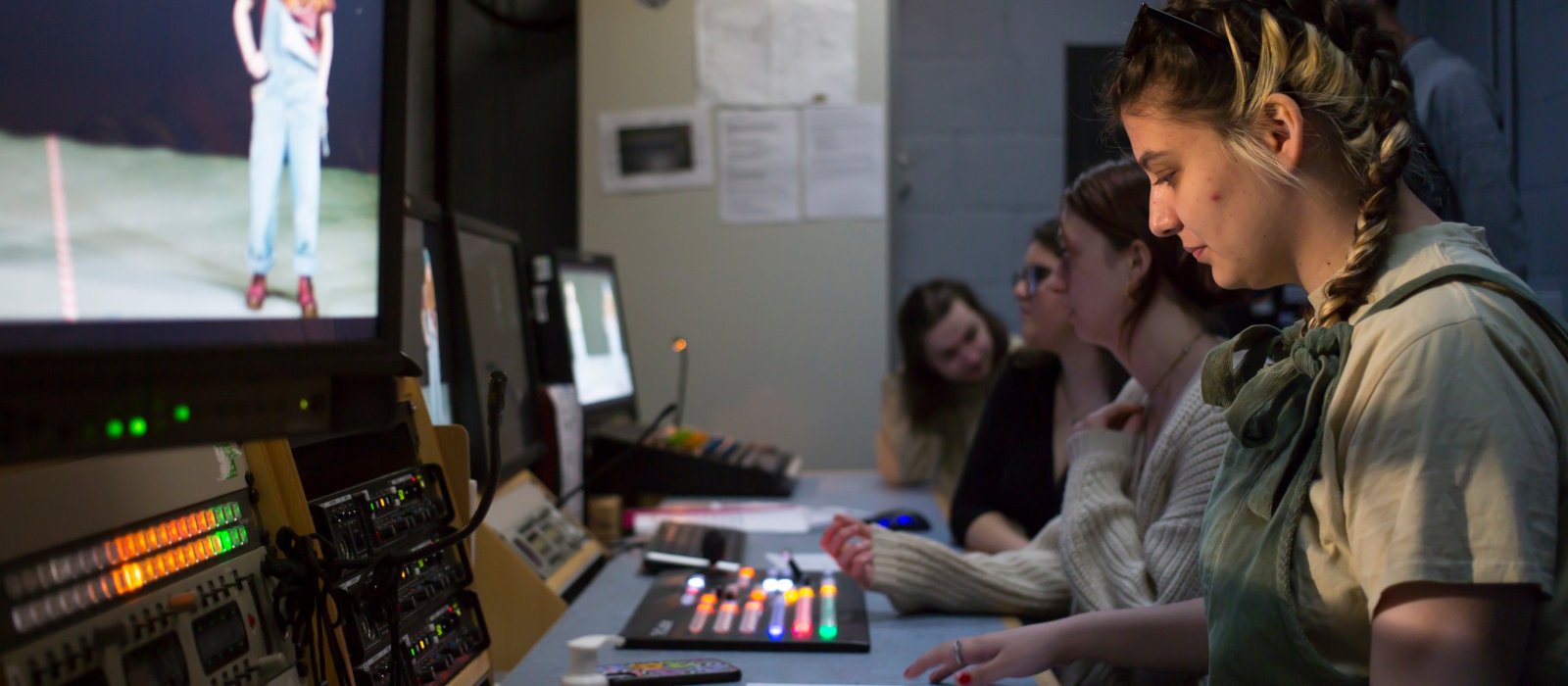

What's the difference between studying Film and Television?
Find out hereHow you'll learn & be assessed
The learning environment of the Television & Film Production course is inclusive and supportive, offering many opportunities for feedback and improvement. You’ll learn through lectures, screenings and masterclasses provided by both Falmouth academic staff and industry guest speakers.
You’ll attend seminars that encourage conversation in smaller groups where you’ll analyse industry topics and develop your own thoughts and ideas. Crit sessions also provide a supportive environment for peer and supervisor input as projects develop. You’ll also have access to project supervision and tutorials where you can gain one-to-one feedback.
You’ll participate in technical workshops facilitated by our experienced technical team. Each workshop focuses on mastering specific equipment and professional craft skills, ranging from technically controlling an image in camera to creative visual storytelling using focal length, composition and lighting techniques, loading 16mm film, using a range of industry-standard cameras, colour grading using DaVinci Resolve, and enhancing your narrative with sound design. This learning by doing approach will help you to understand the cultural and industrial needs of your chosen sector and mirror the industry’s workflow and creative environments.
Over the course of your Television degree there are opportunities for work experience and internships. Students have previously secured work placements at the BBC, Envy Academy and NBC.
At Falmouth, we use a 'digitally enhanced learning & teaching' approach. Your experience will always be predominantly in-person, including seminars, tutorials and studio teaching, with some, more targeted elements, being online either live (synchronous) or pre-recorded (asynchronous). You can read more here.
You'll be assessed with practical and written coursework. There are no formal exams on the course.
Assessment methods
- Portfolios
- Filmed productions
- Presentations
- Essays
- Video essays
- Scripts
- Preparatory work
- Critical evaluation
Work towards assessment takes place throughout the study block with submission deadlines towards the end of each term. You will receive feedback throughout each module via bookable tutorials and campfires, crit sessions and feedback tutorials which provide support and guidance leading up to assessment deadlines. Summative feedback will also be provided after each assessment deadline.
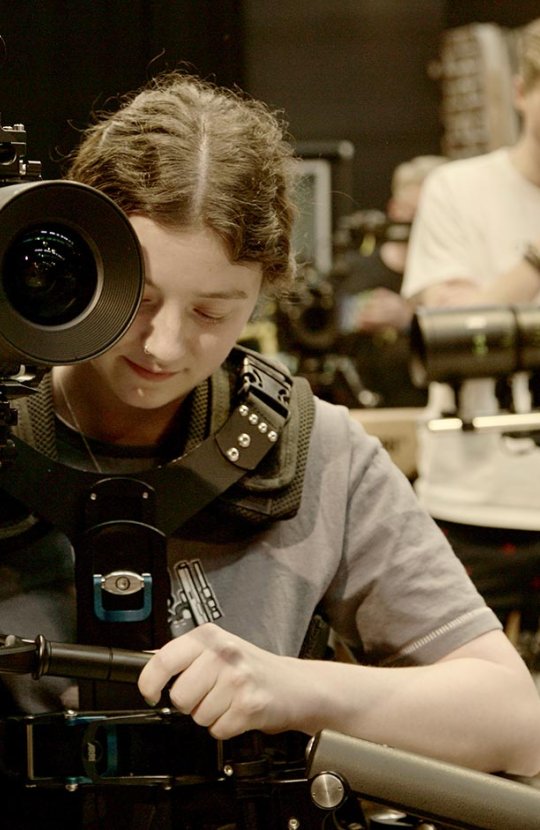
Virtual tour
Discover where you’ll spend your time as a student with our 360° tour, showcasing our facilities, accommodation, town and scenery.
Facilities
Our Television & Film Production course sits within our School of Film & Television on Penryn Campus. The dedicated building features extensive production, post-production and facilities store.
- 129-seat cinema, with Christie M Series 2.5k projection and 7.2 surround sound.
- Four large production studios
Production Studio 1: multipurpose studio equipped with three Sony HXC-FB80 studio cameras, chromatte grey screen and full lighting rig. Integral live gallery including 4-input Tricaster Ultra HD production system.
Production Studio 2: multipurpose studio and support area for studio 1.
Production Studio 3: multipurpose studio with lighting rig.
Production Studio 5: Specialist green screen studio with infinity cove & 360 degree subject lighting rig. Access to Xsens motion capture kit and VR/AR/MR equipment.
- Nine Mac Pro edit suites with Avid Media Composer, Adobe Creative Cloud Suite & Da Vinci Resolve
- Two specialist grading suites featuring DaVinci Resolve and 4K preview screens
- Two 28-seat ‘Post Hubs’ for post-production software training, equipped with dual screen Apple iMacs. Software available includes Avid Media Composer, Adobe Creative Cloud, DaVinci Resolve and Pro Tools Avid NEXIS shared storage system for seamless access and integration of projects
- 25-seat dubbing theatre with Avid S6 mixing desk and Pro Tools Ultimate. Foley/ADR suite with access to a wide range of mics, foley traps and props
- Three further post-production audio suites – all equipped with Pro Tools Ultimate
- Digital cameras (HD to 5K) including Arri Alexa, RED Gemini, Sony FX6, Canon C500 and XF305, and Arri SR3 and Bolex 16mm film cameras, plus Odyssey 7Q+ External Recorders
- Wide range of hot and cold (LED) lighting equipment including systems by Arri, Dedo & Kino Flo alongside traditional blondes and red heads
- Grip and gimbal systems available include DJI Ronin Gimbal systems, Wally Dolly, Indie Dolly, PD1 Dolly, Ronford Baker Sliders, Libec and Camcrane Jibs
- Audio equipment includes Sound Devices 633 mixers, recorders and an extensive range of microphones
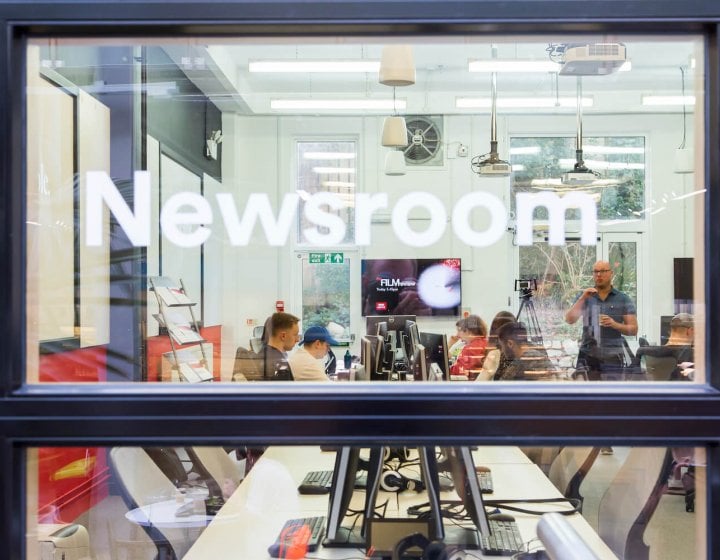
Media Equipment and Facilities
Our industry-level facilities offer everything you need to practice and produce animation, film, TV,...
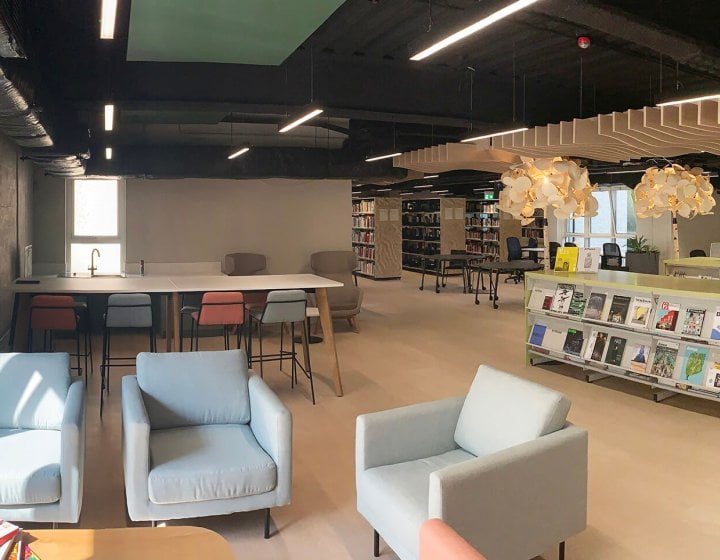
Library Facilities
Offering extensive collections, our two libraries provide a wealth of digital resources, magazines, ...

Sports Centre
Our Sports Centre, on Penryn Campus, includes a spacious gym with up to 90 of the latest, new statio...
Staff
Our industry professional staff have backgrounds in television drama and documentary, producing, directing, screenwriting, cinematography and research. Their award-winning work has appeared on Netflix, BBC, Channel 4 and in cinemas. Our technical and craft team includes specialists in lighting, cinematography and post-production picture editing and grade and sound editing and mixing.
Some members of staff only teach on specific modules, and your course might not feature every staff member who teaches on the course.
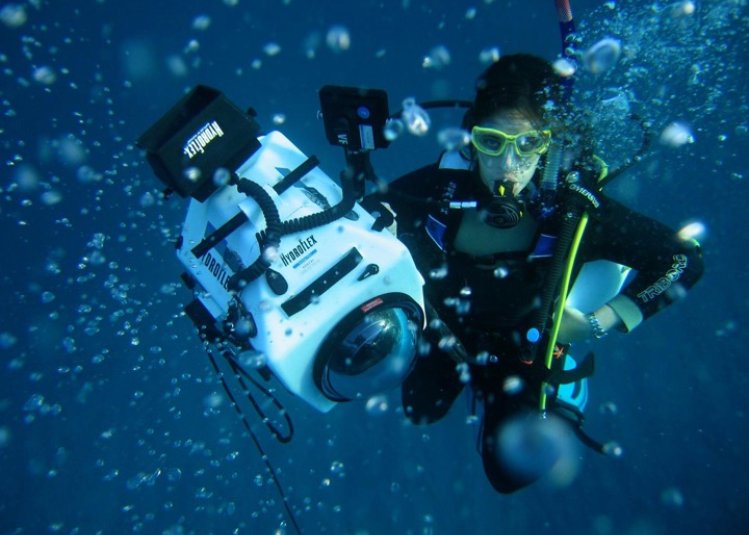
Faye
Course Leader, BA Television and Film Production
Faye is the Television and Film Production Course Leader at the School of Film & Television, hav...
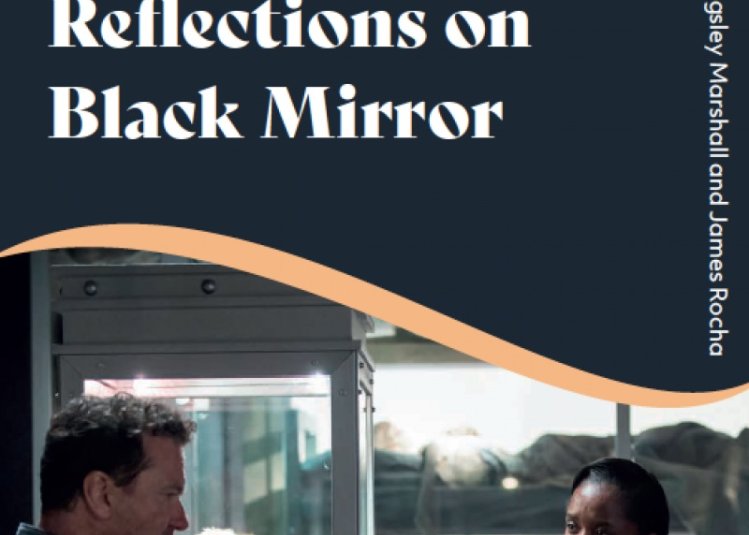
Dr Kingsley Marshall
Head of Film & Television
Dr Kingsley Marshall is Head of the CILECT and ScreenSkills accredited School of Film and Television...
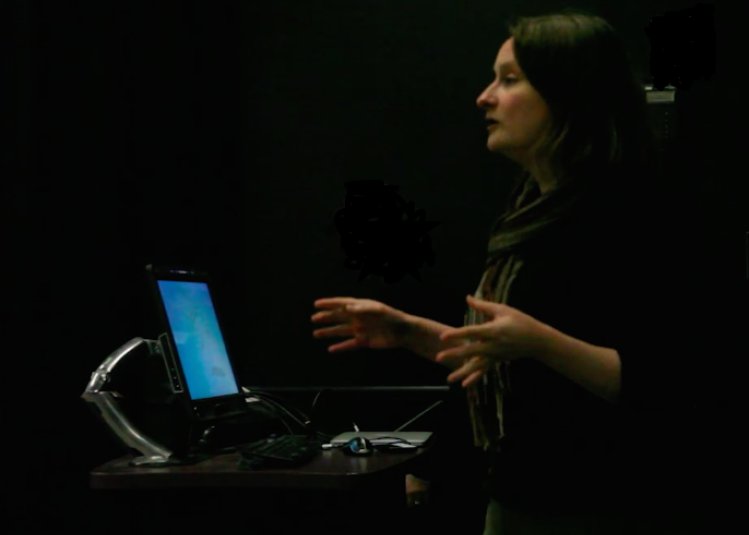
Dr Victoria Byard
Senior Lecturer in TV & Film Production
Victoria Byard is a Senior Lecturer in the School of Film & Television. She received her BA in E...
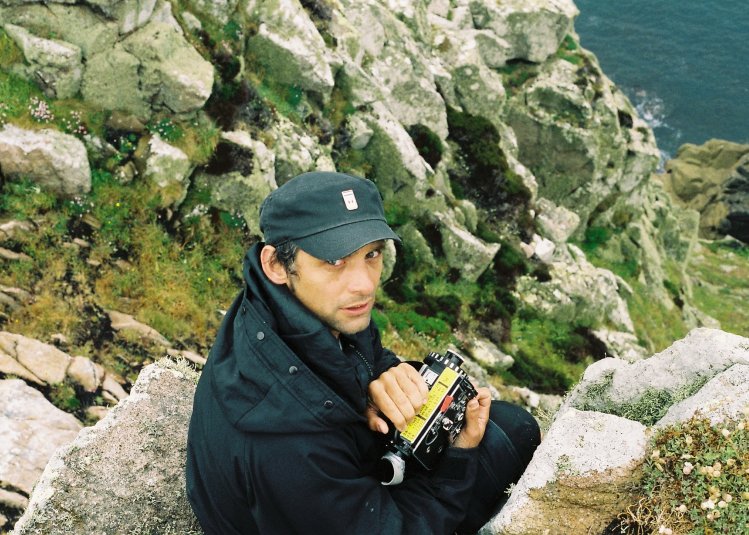
Mark Jenkin
Distinguished Professor of Film Practice at Falmouth University
Distinguished Professor of Film Practice Mark Jenkin is a filmmaker based in West Cornwall. He ha...
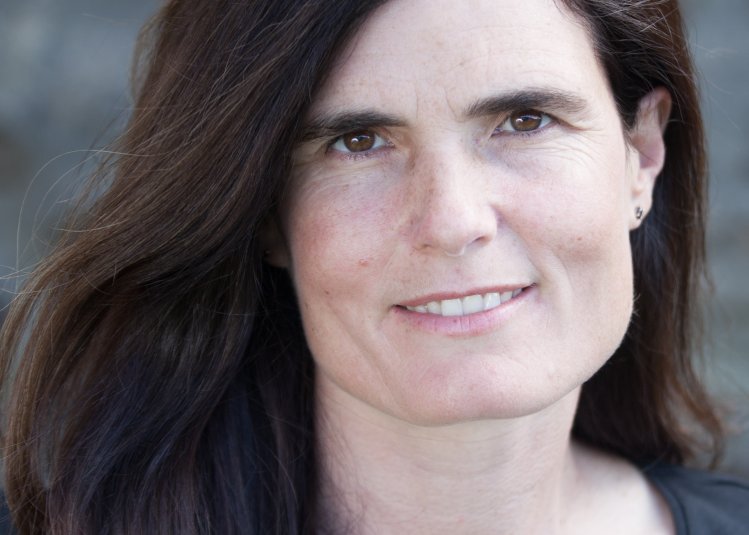
Charlie Fripp
Senior Lecturer, Television
Charlie is a Senior Lecturer at the School of Film and Television. Charlie is a former BBC journalis...
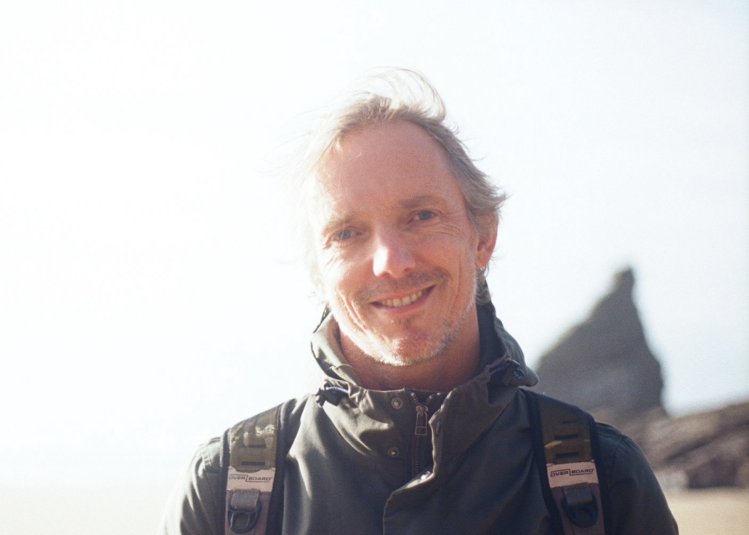
Matthew Rogers
Senior Lecturer, Television
Matthew is a socially-minded Senior Lecturer who applies innovative and inclusive teaching methods t...
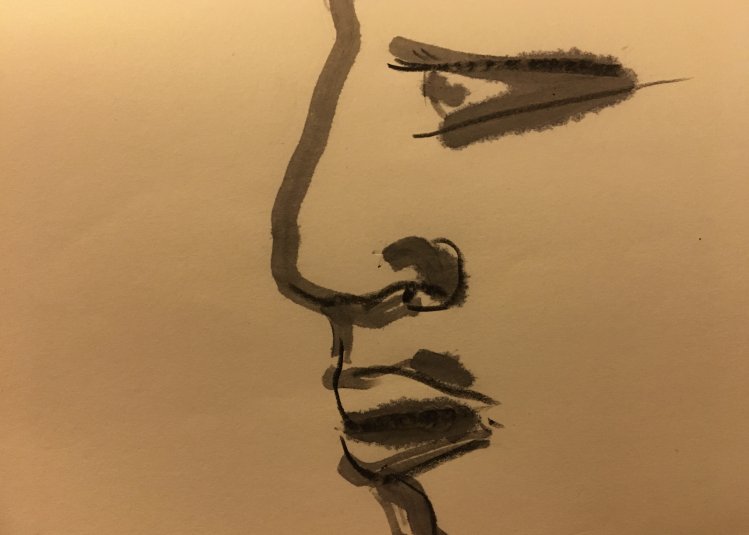
Caroline Deeds
Lecturer in Documentary and Factual Television
Caroline has a background as a fine artist. She studied at Glasgow School of Art and then Centr...
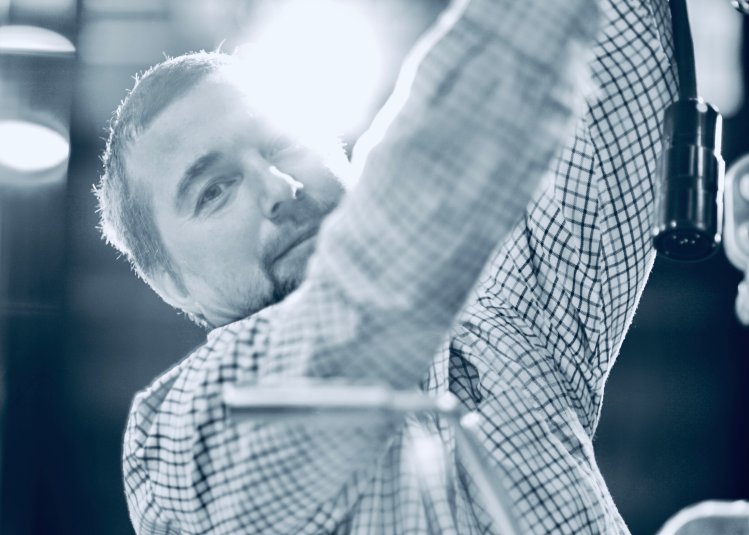
Laurie Bowles
Senior Technician of Camera & Lighting
Laurie comes from the film making world with an extensive array of practical skills and industry exp...
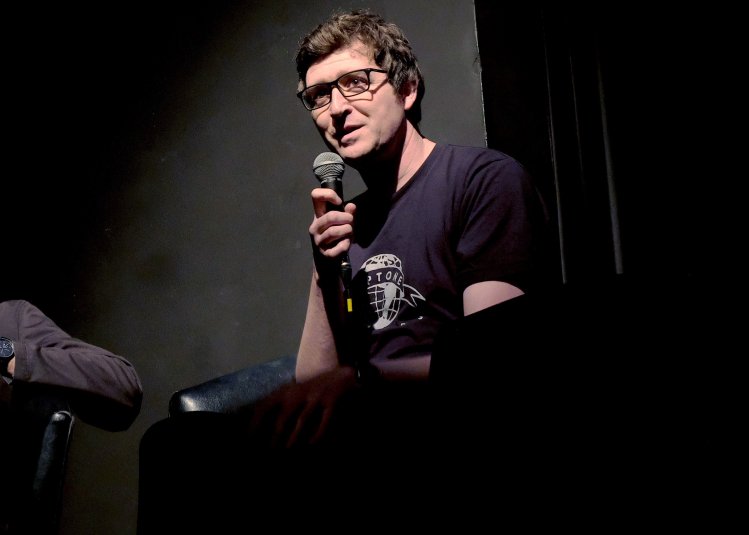
Professor Neil Fox
Professor of Film Practice and Pedagogy
As a proud first-generation university graduate from a working-class background in Luton, it is an h...
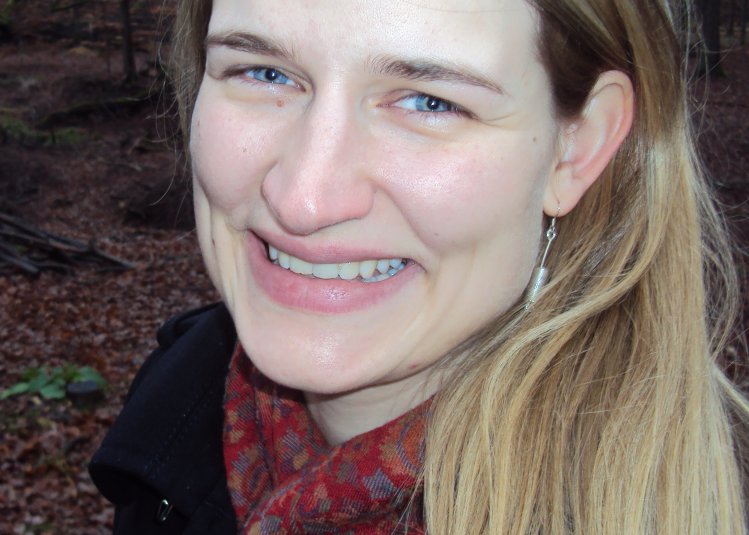
Dr Verena Von Eicken
Lecturer
Verena von Eicken is a lecturer at the School of Film & Television. She was awarded her PhD in T...
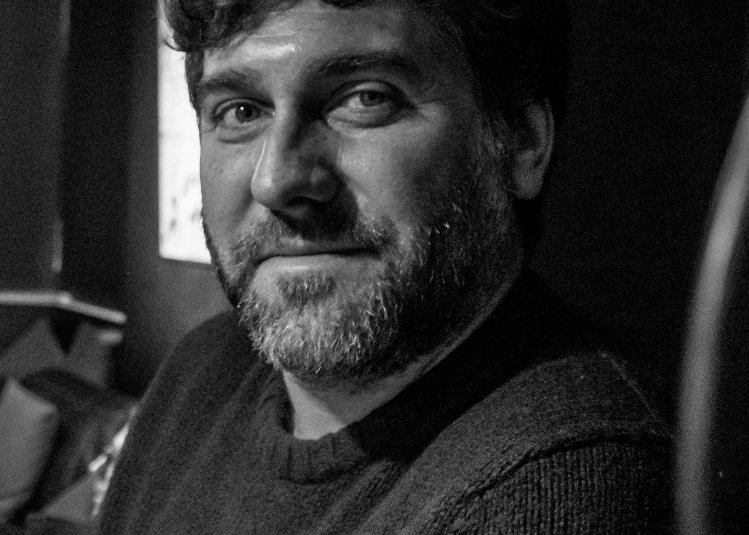
Paul Mulraney
Lecturer, Film
Paul is a lecturer in the School of Film and Television, teaching general film practice across all l...
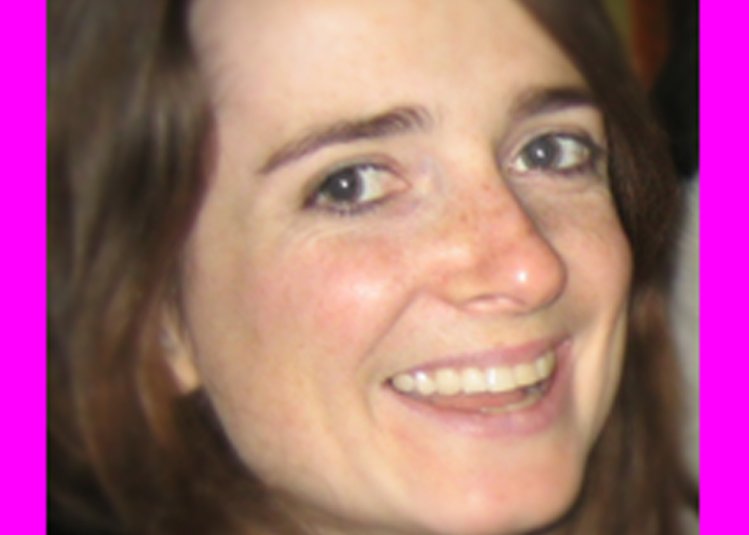
Rosa Mulraney
Senior Lecturer
Rosa Mulraney is a Senior Lecturer on the BA (Hons) Animation course within the School of Film and T...
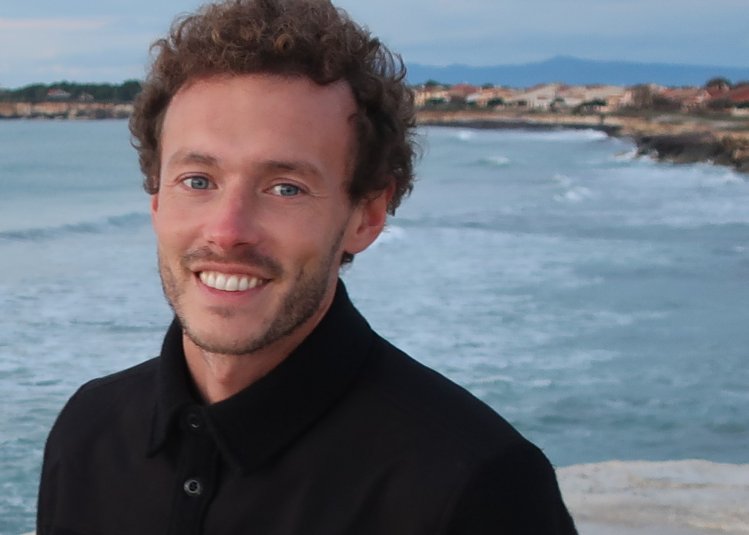
Dr Struan Gray
Senior Lecturer, Film BA(Hons)
Struan Gray is a senior lecturer in the School of Film and Television at Falmouth University, teachi...
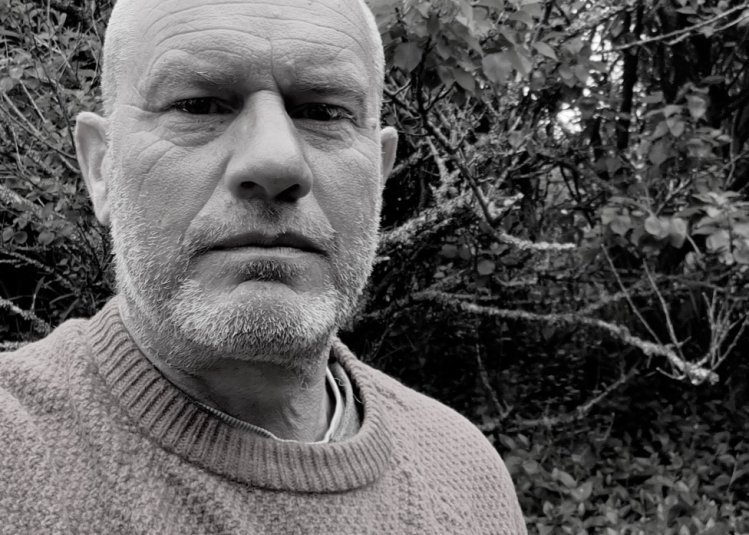
Dr Julian Konczak
Lecturer
Following a career in production as a post-production freelance, I have taught a range of modules in...
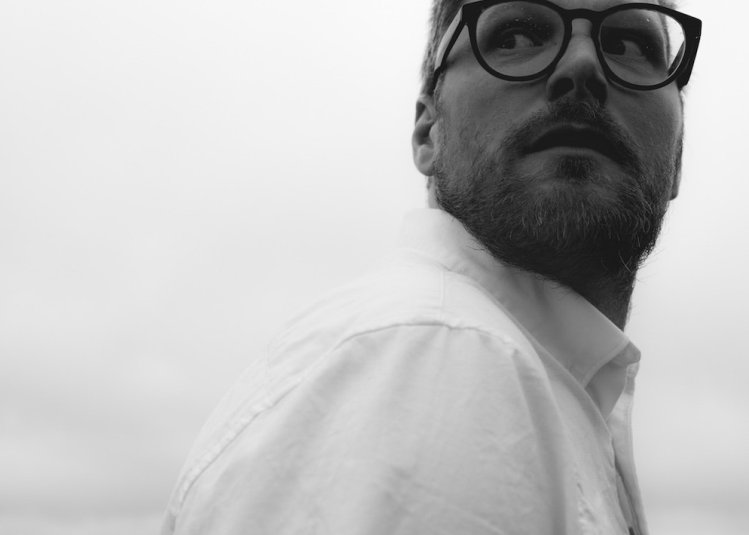
Dean Puckett
Lecturer
Dean Puckett is a writer/ director and film lecturer at Falmouth University in Cornwall. He recen...
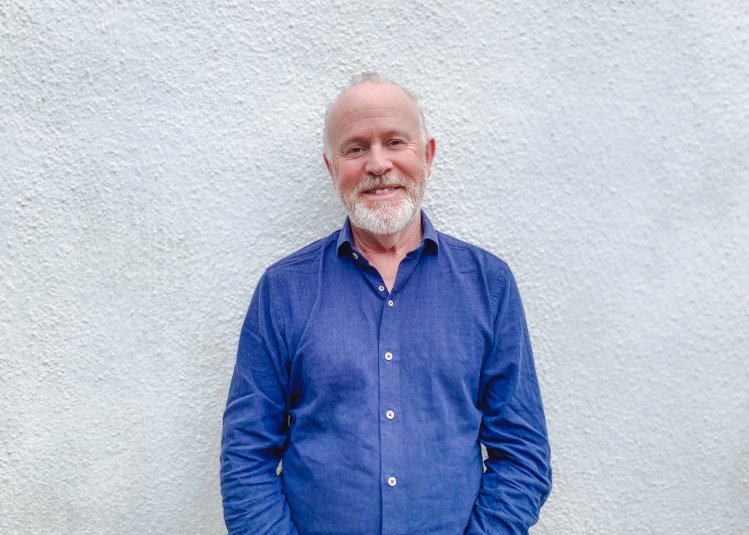
Graham Mitchell
Lecturer, Film and Television Production BA(Hons)
I've written TV and film for 35 years before which I worked as an actor in theatre, film and televis...
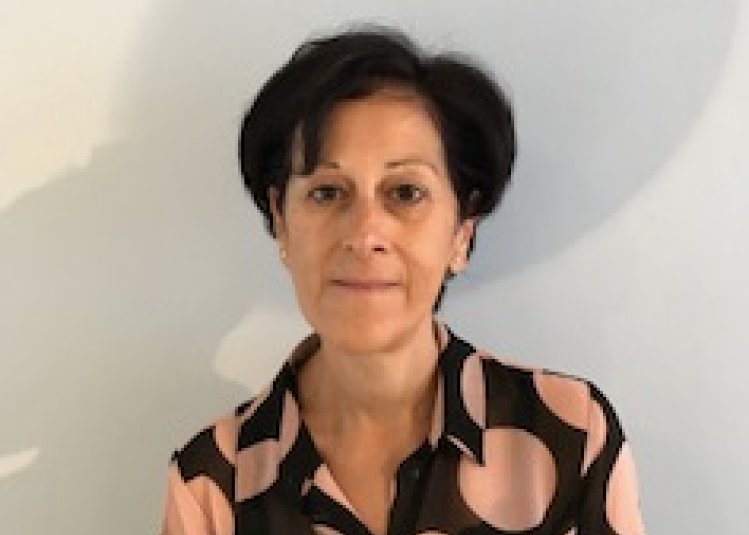
Dr Lisa Socrates
Module Leader, Television & Film Production BA(Hons)
Lisa Socrates joined Falmouth University as an Associate Lecturer in the School for Film and Televis...
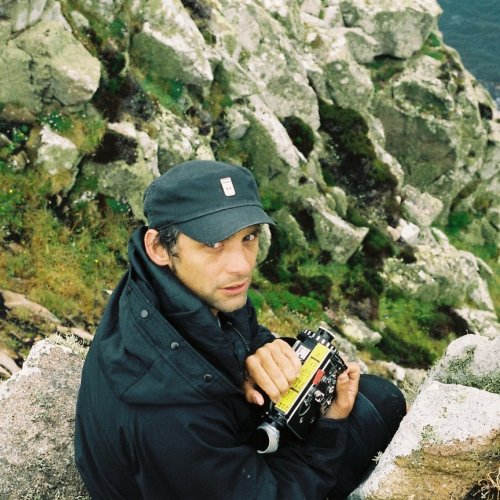
BAFTA winner Mark Jenkin becomes Falmouth's first distinguished professor
Mark is a BAFTA award winning filmmaker who's worked at Falmouth University as an associate lecturer for over a decade - find out more about his new role.
Read about Mark Jenkin's careerStories from our community
Explore student projects, graduate successes, staff news and industry insights
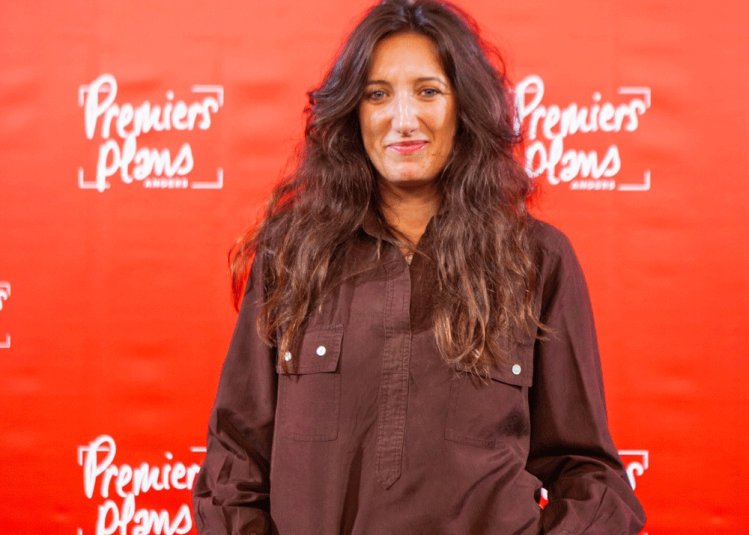
Film alumna and BAFTA winner takes her debut feature film to the festival circuit
17 February 2026
After seeing her film featured at Toronto International Film Festival, San Sebastián Film Festival ...
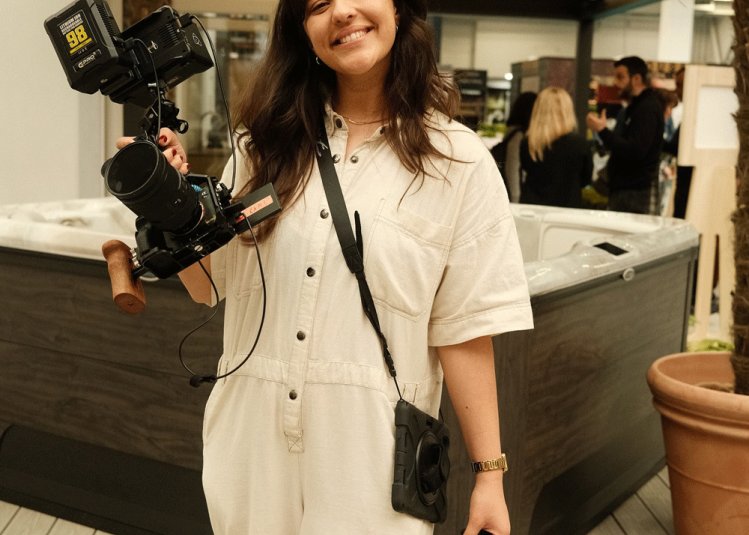
From film student to producer: Libby Gibbons reflects on the joy of working in commercial filmmaking
13 February 2026
Libby Gibbons has gone from studying both a BA(Hons) Film and MA Film & Television at Falmouth to wo...
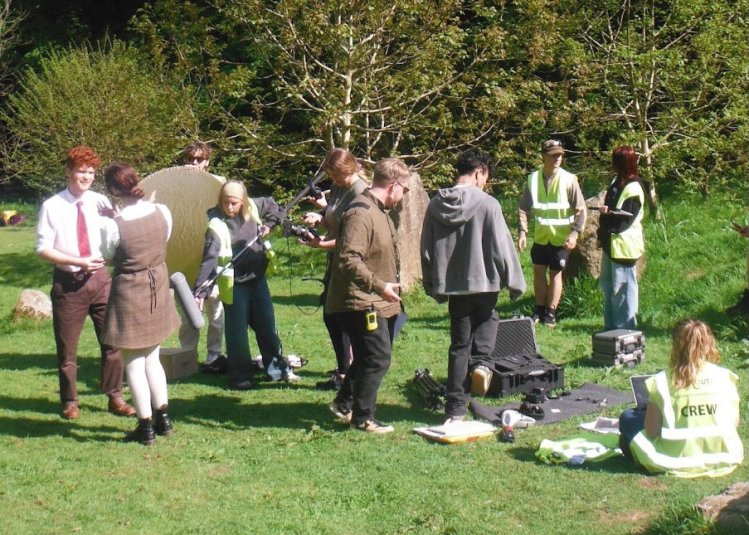
My experience of collaboration at Falmouth
02 February 2026
Alexandro explains how he collaborates with other students across the University.
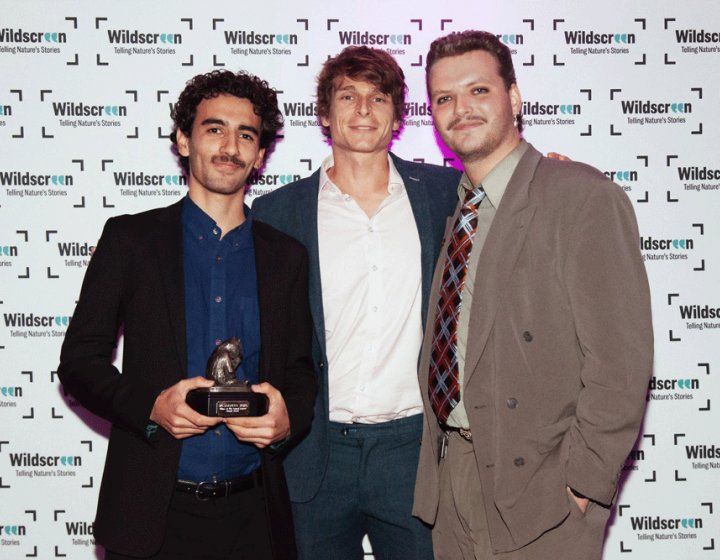
Film & Television alumni win at the Wildscreen Panda Awards
23 January 2026
“Winning at the Wildscreen Panda Awards was honestly a dream come true,” says Adam Radage, a gra...
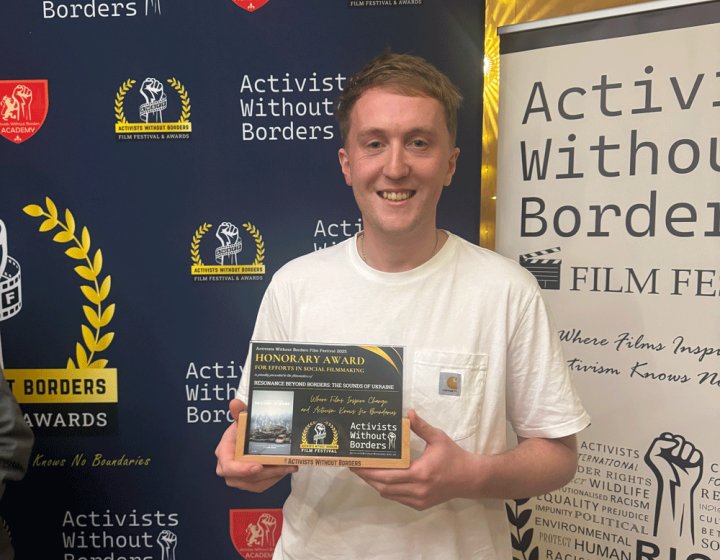
Television alumnus wins honorary award at Activists Without Borders Film Festival
05 December 2025
Since gaining his BA(Hons) Television & Film Production, Tom Waller has forged a career in filming, ...
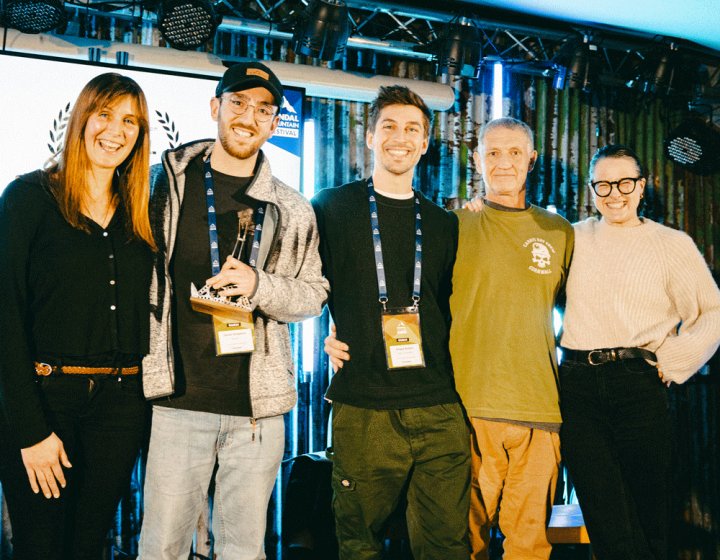
Film alumni take home award for Best Adventure at the Kendal Mountain Festival
02 December 2025
School of Film & Television alumni Dan Simpkins and Angus Breton, along with the rest of the creativ...
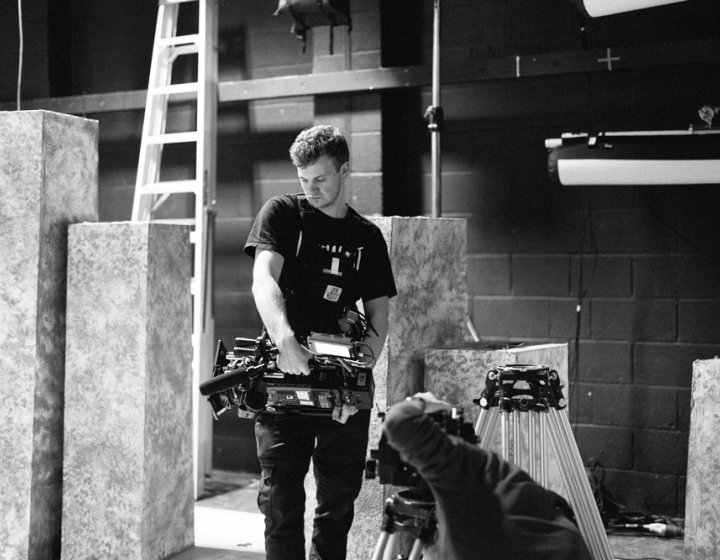
Meet the television alumnus behind the UK Surf Cinema tour
20 November 2025
Since graduating with a Television & Film Production BA(Hons), Theo Cockrean has been part of the ca...
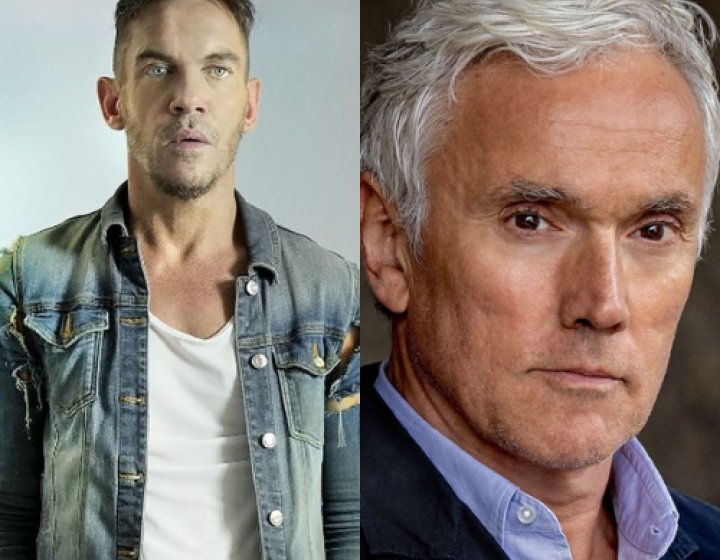
Creative Writing lecturer co-writes new horror film set in Cornwall
14 November 2025
Falmouth University’s Sound/Image Cinema Lab (S/ICL) and Creative Writing BA(Hons) lecturer, Craig...
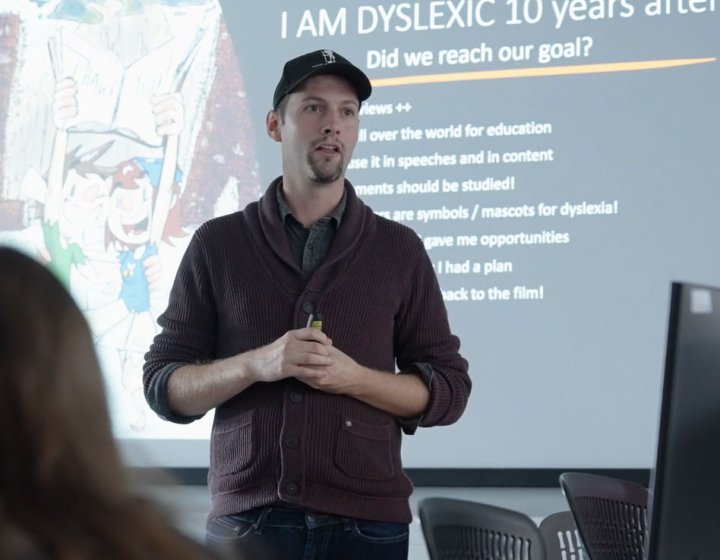
Animation alumnus on the impact of his final year project, I Am Dyslexic
11 November 2025
When Norwegian filmmaker and illustrator Mads Johan Øgaard arrived at Falmouth University, he did m...

Falmouth students go behind-the-scenes at Elstree Studios, home of Strictly Come Dancing
10 November 2025
Final year Television & Film Production BA(Hons) students recently had the exciting opportunity to g...
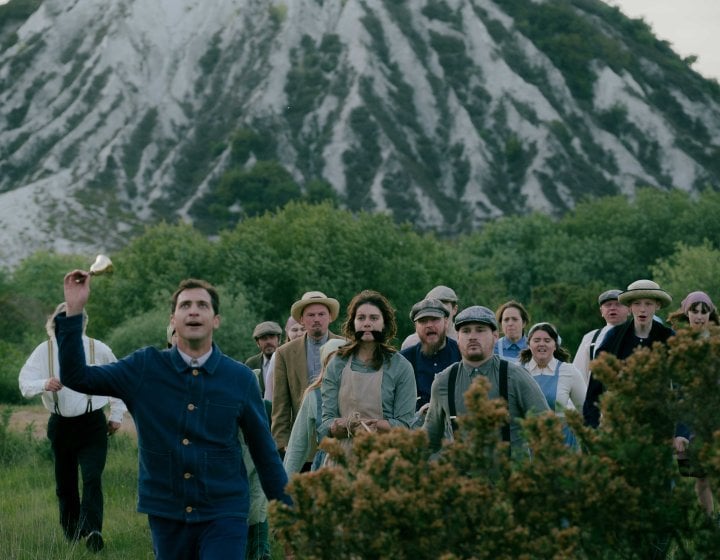
A still from The Severed Sun. Credit Steve Tanner
Falmouth filmmakers on folk horror, community and the Cornish landscape
28 October 2025
Horror films have an enduring popularity amongst film fans, delivering adrenaline rushes and raw hum...
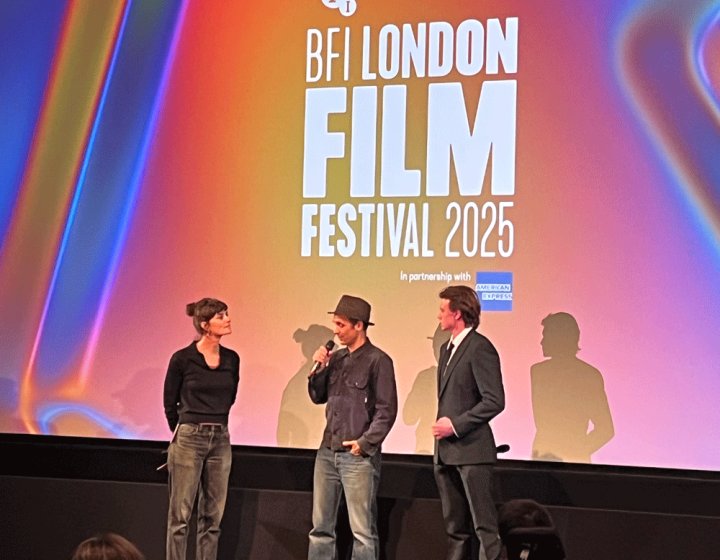
Regional Voices, Universal Stories: How Falmouth’s Sound/Image Cinema Lab is shaping the future of film
16 October 2025
As Rose of Nevada, which had more than 30 film students performing key roles on its production, scre...
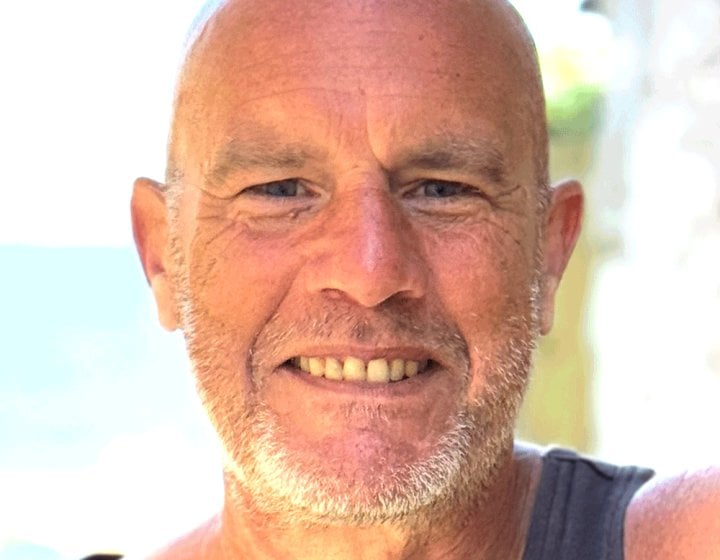
Film lecturer brings his award-winning documentary to Cornwall for its UK premiere
01 October 2025
After a summer of international success garnering accolades in India from Kookai International Film ...
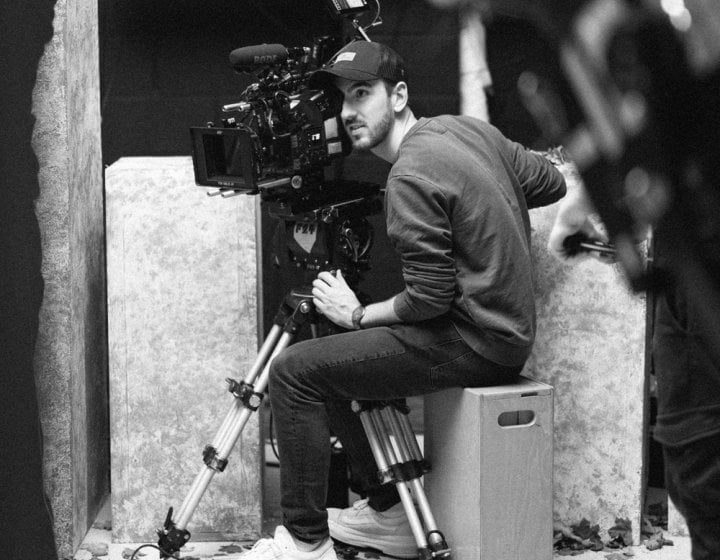
Film alumnus explores men’s mental health, mining and Cornwall’s community in new documentary
25 September 2025
Dan Simpkins is an award-winning documentary filmmaker and Director of Photography, who since gradua...
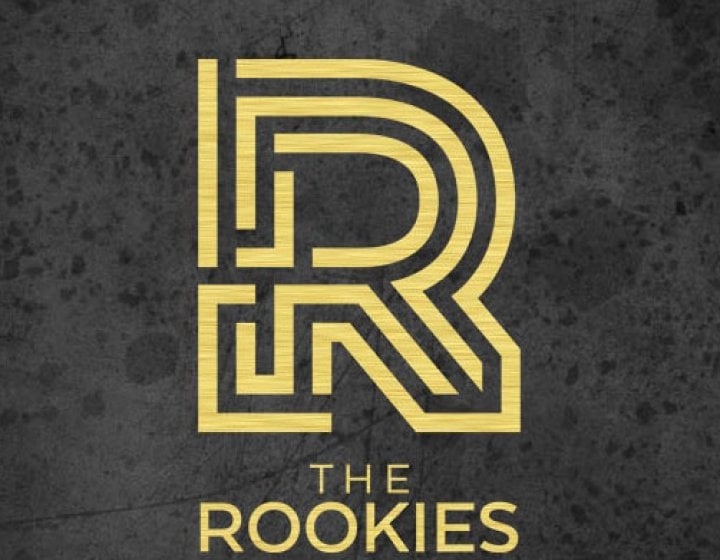
Animation students named finalists in global Rookies awards
23 September 2025
Two student films from Falmouth’s Animation BA(Hons) have made a splash at The Rookies, an interna...

World premiere success for Falmouth’s Mark Jenkin at Venice
04 September 2025
Critics praise 'Rose of Nevada' for its bold aesthetic and powerful storytelling.
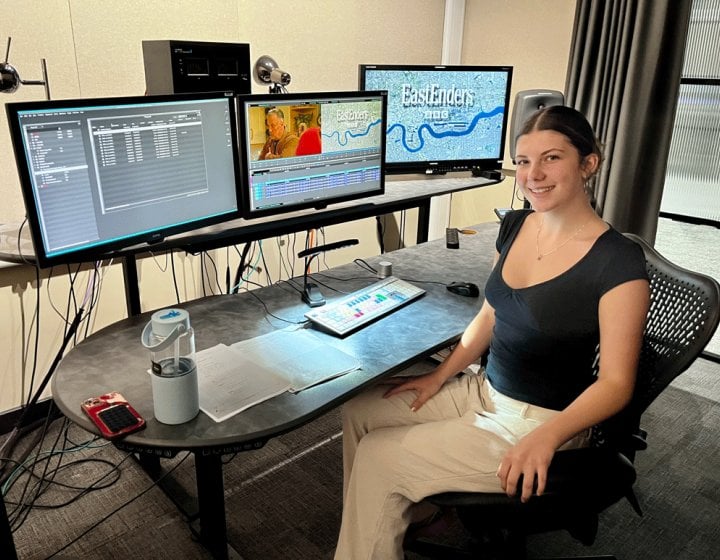
Falmouth students gain post-production experience on EastEnders set
04 September 2025
Over the course of the summer, two second-year Post Production & Visual Effects BA(Hons) students an...
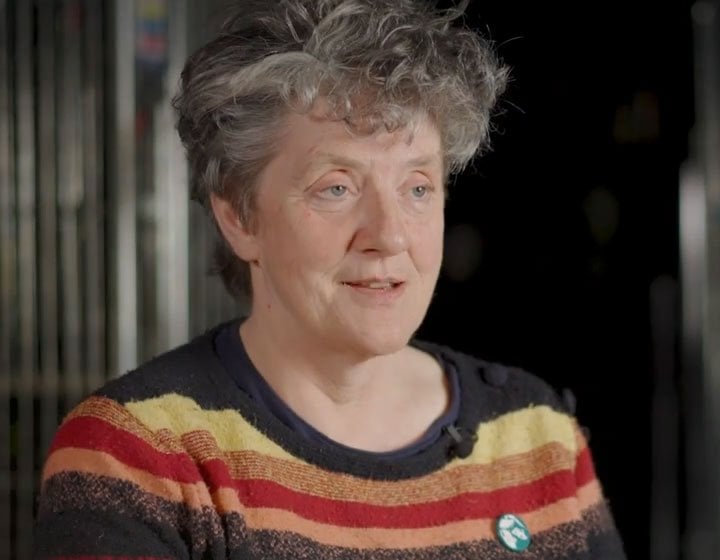
Finding your voice on Falmouth’s online film and TV course
13 August 2025
For many writers, the dream of completing a full-length screenplay is often pushed aside by the dema...
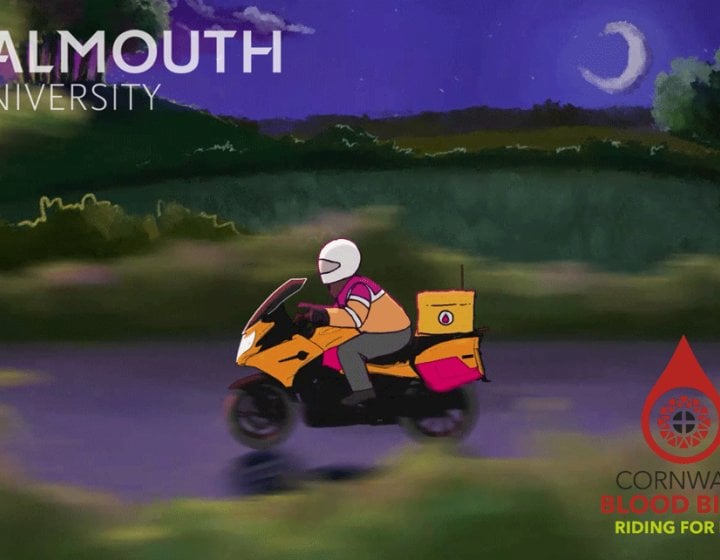
Animation students collaborate with three influential UK charities
13 August 2025
Falmouth University is an institution that nurtures creative talent by giving its students hands-on ...
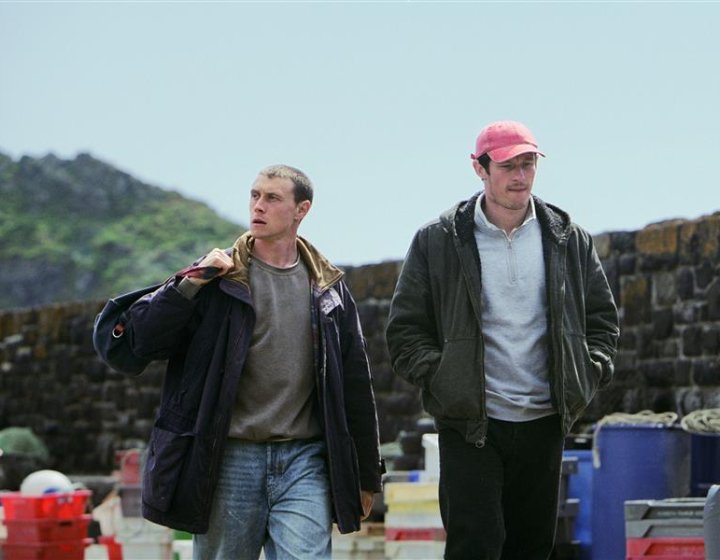
George MacKay and Callum Turner on the set of Rose of Nevada. © Ian Kingsnorth
Mark Jenkin’s Rose of Nevada to premiere at the Venice Film Festival
29 July 2025
'Rose of Nevada' will make its world premiere at the Venice Film Festival, screening in the Orizzont...
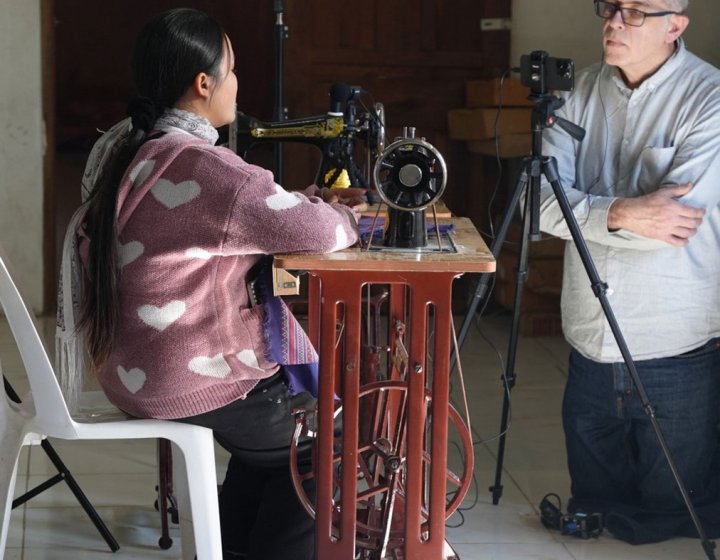
Film & TV course leader on shooting his documentary in Laos
29 July 2025
Armed with a smartphone, gimbal and radio mics, MA Film & Television (Online) course leader Jem Mack...
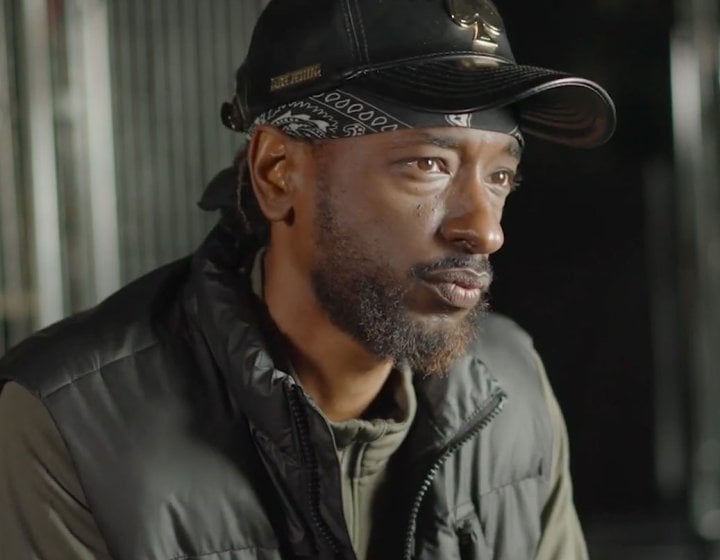
Meet the online Film & TV student building inclusive crews through Facebook
27 June 2025
When Film & Television MA (Online) student Hassan Robleh set out to make his latest short film, Unbr...
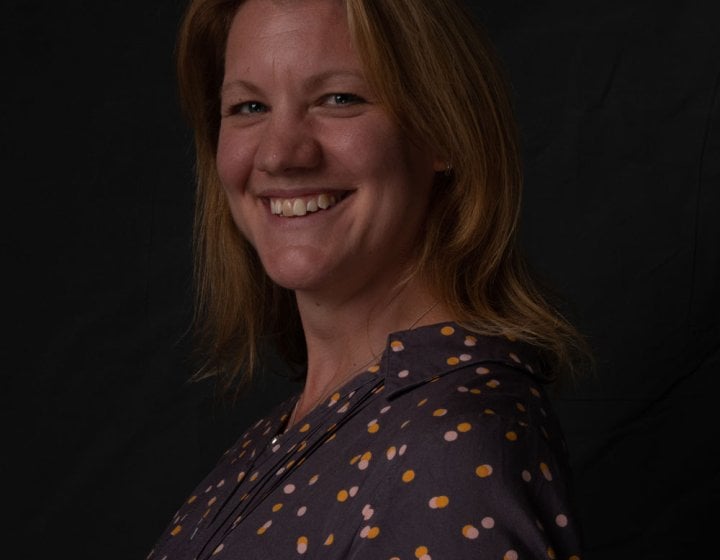
Online Film & TV graduate on the benefits of studying online
13 May 2025
In order to push her career to the next level and scratch her creative itch, studying had to fit aro...
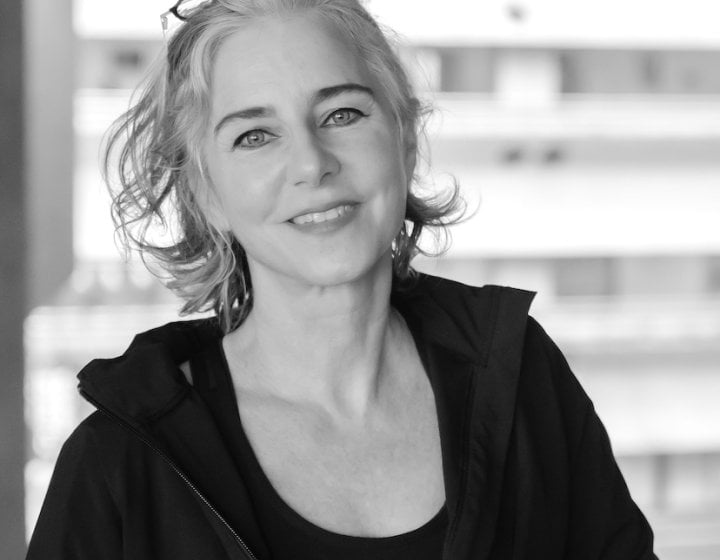
Online Film & TV graduate on studying from Hong Kong
07 May 2025
From professional dancer to director, educator and NGO founder, Elissa Rosati has spent her career i...

George MacKay and Callum Turner on the set of Rose of Nevada. © Ian Kingsnorth
New student-backed films from Falmouth’s Sound/Image Cinema Lab
06 May 2025
Here’s a look at some of this year’s standout student-supported releases.
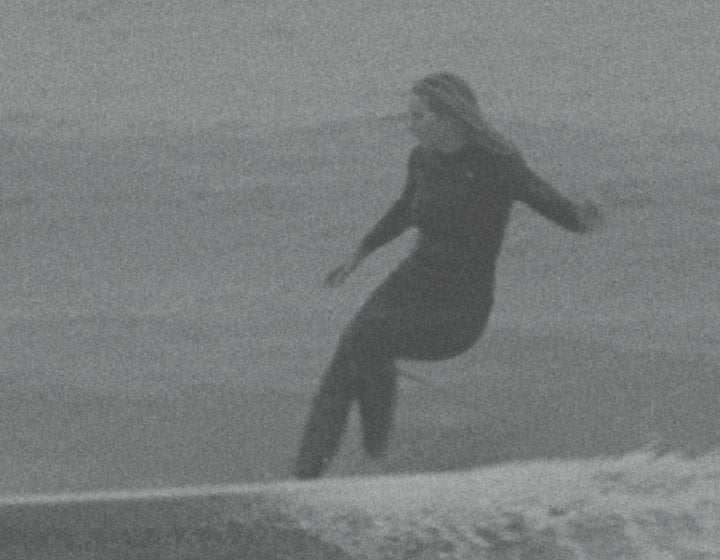
Nahlia Loren Couto on crafting a surf film across time zones
17 April 2025
Cornish folklore and green storytelling unite in An Mór: Where the Tides Speak, a poetic eco-advent...
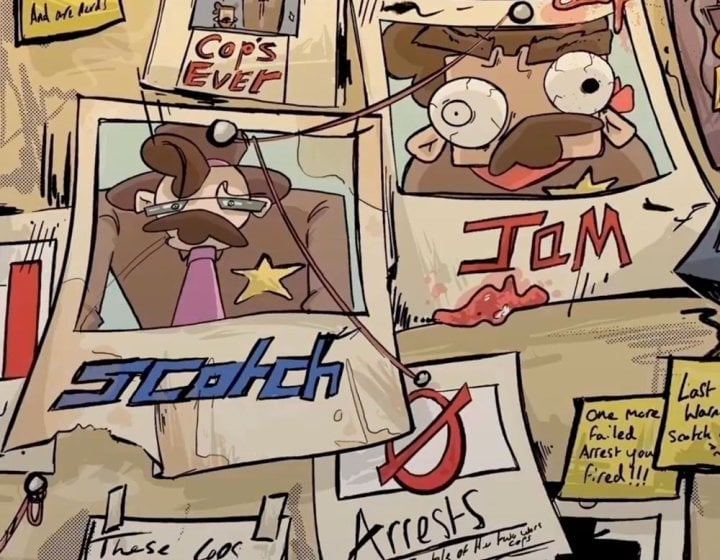
Animation students scoop RTS award
15 April 2025
When second-year Animation BA(Hons) students Faith Evans and Dylan Pierce first came up with the ide...
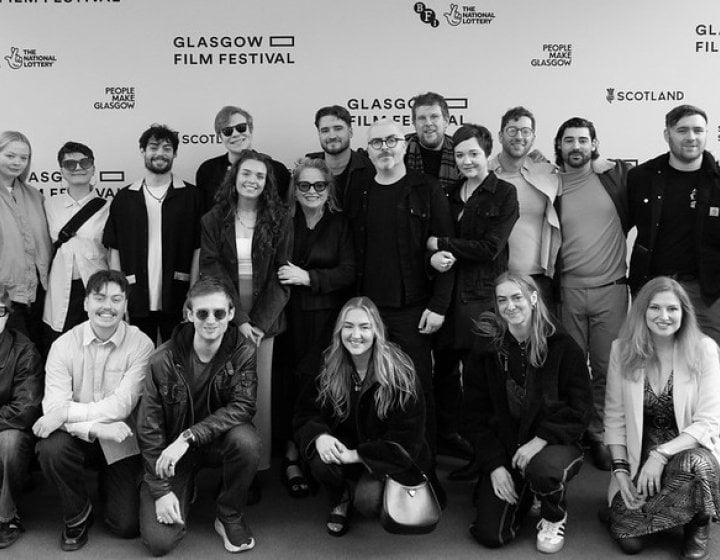
‘The Birdwatcher’ premieres at UK’s leading horror film festival
21 March 2025
Students from across Falmouth’s School of Film & Television, Fashion & Textiles Institute, and Gam...
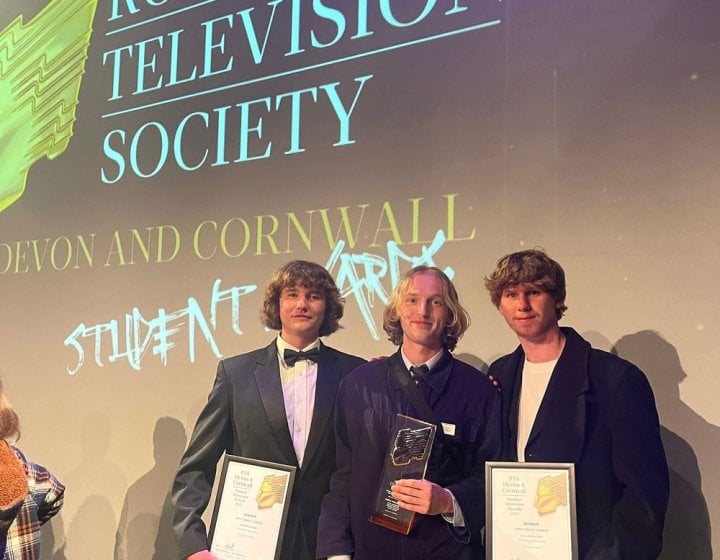
Graduate's seaweed plastic documentary wins more recognition at Royal Television Society Awards
21 March 2025
Television & Film Production BA(Hons) graduate Olaf Lawrence’s documentary about seaweed plastics ...
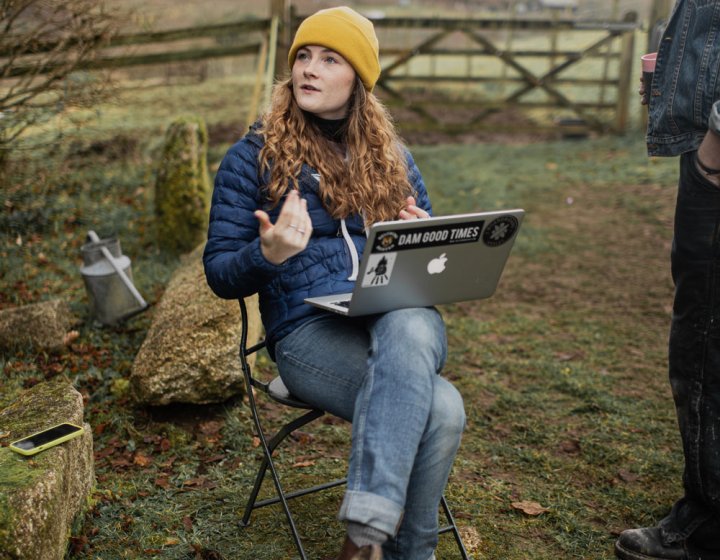
Film graduate Rachel Clear Burton on working as a production coordinator
03 March 2025
Rachel Clear Burton has enjoyed a series of exciting achievements, including the success of her fina...
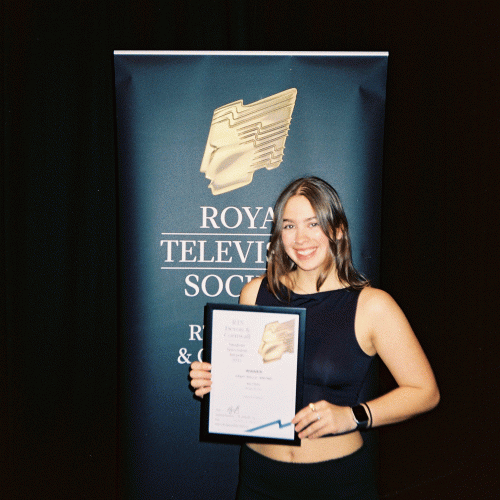
'Falmouth nurtured a balance that allowed me to focus on my writing skills, whilst also giving me practical opportunities. I got to work closely with industry professionals... I was able to create a short film in my third year that, in the end, set me up for my graduate job!'
- Bridget Bowers, Television & Film Production BA graduate and Royal Television Society award winner 2025
Read Bridget's storyCareers
Our Television & Film Production graduates have worked in the development and production of major television series, short and feature films and commercials, with credits including Deadpool, House of the Dragon, the Star Wars franchise, Enys Men, Blade Runner 2049, Alice Through the Looking Glass, Belle, the Mission: Impossible and Bond franchises, Peterloo, Broadchurch, The Apprentice, Squid Game, and The Great British Bake Off.
Alumni have been employed in production roles at Channel 4, Warner Bros, Disney, Netflix, Sony and Universal. Graduates have also worked in post-production at Envy, Technicolor, White House Post, Molinare, Films at 59, and Evolution. They’ve secured roles in production design at Lucasfilm, and in the camera department for shows screened on the BBC, Amazon, Netflix and Discovery Channel.
Our graduates’ work has secured development funding from the BFI and BAFTA, and been published in titles including Total Film, The Telegraph, The Guardian and Little White Lies.
Students have previously completed work placements at Sky, NBC, Cannes Film Festival, Gorton Studios, MTV, BBC, Envy, E4 and Channel 4.
We’ve also produced a slate of films through the Sound/Image Cinema Lab, our in-house production centre, which students have the opportunity to crew on. Recent titles include Film4's Rose of Nevada (2025), The Severed Sun (2024), Enys Men (2023), A Year in a Field (2023), Long Way Back (2022), Wilderness (2021), Bait (2019), Make Up (2019) and shorts including and The Birdwatcher (2023), Bloom (2023), Mab Hudel (2022), Kestav (2020), Hard Cracked the Wind (2019) and Backwoods (2019).
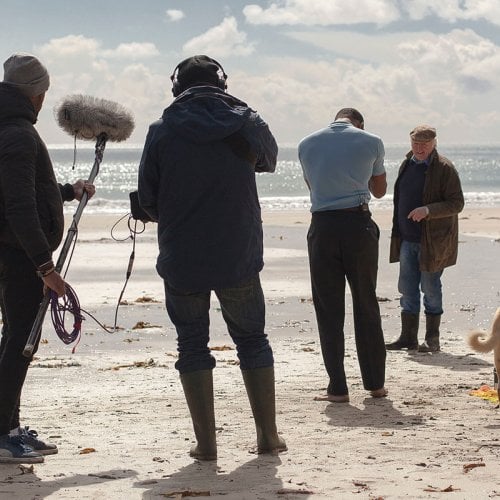
Introducing the Sound/Image Cinema Lab
Immersive, hands-on experience for students across television and film disciplines await: welcome to Falmouth's film production project, the Sound/Image Cinema Lab.
Read about the Sound/Image Cinema Lab'I wouldn’t be where I am today without the support and advice given to me throughout my time at Falmouth. The lecturers and course enabled me to turn my dreams into reality.'
- Daisy Allen, graduate and Camera Trainee on Fantastic Beasts: The Secrets of Dumbledore, No Time to Die (dailies) and Eternals
How to apply
Ready to apply for 2026?
You can apply for our undergraduate degrees via UCAS. You'll need our university UCAS code (F33) as well as your course code (which you'll find on your course page) for your application.
Applying as an international student?
There are a number of different ways to apply to study at Falmouth as an international student. Find out how you can become part of our creative community.
| Course route | UCAS code |
|---|---|
| Television & Film Production BA(Hons) three year degree | 09X3 |
| Television & Film Production BA(Hons) with Integrated Foundation Year | FY58 |
| Television & Film Production BA(Hons) with professional placement | PY60 |

Application advice & interview information
Go to ToolkitFor starting your studies in 2026
UK applications: 14 January 2026 (for equal consideration)
Applications after the 14 January will be considered on a first-come, first-served as long as there are places available. Apply for this course now.
For starting your studies in 2027
UK applications: 13 January 2027 (for equal consideration)
International fee payers
International fee payers can apply throughout the year. But we recommend applying as early as possible, to make time for visa and travel arrangements.
We consider all applications on their own individual merit and potential.
Our diverse community is creative, innovative and entrepreneurial. We recognise that these qualities aren’t always shown in academic grades alone. That’s why, while many of our applicants achieve high academic grades, we also welcome those who can demonstrate their potential through an interview.
We welcome applications from all subject backgrounds, whether you’ve specialised in STEM, the arts or humanities. Find out more about our Entry Requirements here.
Course routes & entry requirements
BA/BSc(Hons) three year degree: minimum 96 UCAS Tariff points
BA/BSc(Hons) four year degree with professional placement: minimum 96 UCAS Tariff points
BA/BSc(Hons) four year degree with Integrated Foundation Year: minimum 64 UCAS Tariff points
At Falmouth, we'll consider the equivalency of your specific qualifications against our entry requirements and support you through your application journey.
View our International Entry Requirements
Language requirements
For applicants whose first language is English we require you to have or be working towards GCSE English Language Grade 4 (C), or equivalent.
If English is not your first language you will need to meet the same standard which is equivalent to the IELTS Academic 6.0 overall score, with at least 5.5 in Reading, Writing, Speaking and Listening. We accept a range of in country equivalencies and approved tests.
If you need a student visa to study in the UK, you may need to take a recognised language test. You can read our English Language Requirements for more information.
What we're looking for
We want someone who:
- Has something to say and is passionate about telling meaningful stories.
- Engages with some of television’s many forms.
- Understands the importance of critical thinking.
- Can communicate, self-motivate, work well in a team, and never give up.
Fees, costs & funding
Tuition fees
| Annual tuition fee | Student |
|---|---|
| £9,790 per year | Full-time UK |
| £19,950 per year | Full-time EU/international |
| £1,955 per professional placement year | Full-time UK and EU/international |
| £9,790 per Integrated Foundation Year | Full-time UK |
| £19,950 per Integrated Foundation Year | Full-time EU/international |
| Annual tuition fee | Student |
|---|---|
| £9,535 per year | Full-time UK |
| £17,950 per year | Full-time EU/international |
| £1,905 per professional placement year | Full-time UK and EU/international |
| £9,535 per Integrated Foundation Year | Full-time UK |
| £17,950 per Integrated Foundation Year | Full-time EU/international |
Tuition fees for September 2027 will be confirmed in summer 2026.
Tuition fees are set annually and are subject to review each year. The University may therefore raise tuition fees in the second or subsequent years of a course, in line with inflation and/or the maximum permitted by law or Government policy. Students will be notified of any changes as soon as possible.
The figures above don't include accommodation and living costs
Typical course costs
-
Est. £200 - £300 laptop (essential)
-
Est. £100 - external storage, such as hard drives (optional)
-
Est. £80 - per module for AVID exam fee (optional)
-
Est. £150 - for outdoor clothing, suitable for filming on location (optional)
-
£700 - £800 - optional study trips
If you need to bring equipment or materials with you, these will be outlined in your Welcome Letter.
Technology
- Laptop (essential)
A laptop will be an essential piece of equipment along with a reliable broadband connection (if you are living in University accommodation you will have this). There is excellent access to computers at Falmouth, both PC and Mac, but having your own laptop to access the digital platforms for your independent and group-based work will be really helpful.
You can expect to pay £200-£300 to purchase a basic one for email and word processing. You may wish to buy one which has or can connect to a DVD player to take advantage of our extensive film collection from the library too. Video editing requires high powered computing which for most will be best achieved using our industry standard editing computers, so you really don’t need to splash out on anything high spec.
- Smartphone (optional)
Even a basic smartphone with a working camera will help you experiment with visual storytelling to supplement the use of the extensive bookable resources.
- Hard Drive (optional)
Hard drives can be borrowed from our Stores, however it’s often handy to have access to your own to store and backup your work for the longer term. Reliability is critical so we would recommend brands such as G-Tech or Lacie with USB 3 connectivity and ideally a minimum disk speed of 7200rpm (approx. £100).
- Training (optional)
We are an AVID-accredited course, which means that you may (particularly if you are interested in working in post-production) wish to sign up for our Pro Tools or Media Composer Certification courses. Tuition for these is free, but you will pay a fee to AVID for the exam, which also covers the ebooks they provide for your training. This fee is set by AVID directly and should be estimated at around £80 per module.
- Outdoor Clothing (optional)
You will be expected to work in all sorts of locations and weather conditions. It is therefore highly recommended that you come fully prepared with the right personal clothing and footwear to protect yourself from the elements and to meet risk assessment requirements. This will set you up well for industry work beyond graduation too.
This list is not exclusive, so please use it as a guide; you should be able to equip yourself for the outdoors for approximately £150 (some companies offer student discounts too so be sure to check):
- Sturdy waterproof boots/shoes (essential)
- Waterproof jacket (essential)
- Warm headgear
- Gloves
- Waterproof trousers (working all day in wet jeans is particularly unpleasant!)
- Warm/thermal top (and bottoms for good measure!)
Study Trips
Trips aren’t mandatory but over the past few years, in most years we’ve been able to offer students the opportunity to travel to a major international film festival (usually the Berlin Film Festival) as part of a group of students. Places are not funded and the cost as last estimated for travel in 23-24 was between £710 and £775 (varies dependent on the number of students travelling, and the rate of exchange at the time).
Students may travel to one or more of the Royal Television Society Breaking Into Media events over the course of their degree, which are often held in Bristol or Plymouth as well as London – these are free but you may wish to consider the cost of bus or train transport to them, and potentially overnight accommodation.
Additional typical course costs for Integrated Foundation Year pathway
- £250 for materials
- A laptop/desktop computer
- Adobe Creative Suite
To engage in the digital learning activity, although you will be able to access IT suites on campus, you will benefit from a laptop to access the platforms and tools we use. Depending on your subject, you may need a specific type of computer. If you're unsure about what you might need, please contact our course advisors.
Laptop (essential)
There is excellent access to computers at Falmouth, both PC and Mac, but you will also need your own laptop and a reliable internet connection to access the digital platforms we will be using for online activities as well as your independent and group-based work.
You can expect to pay £200-£300 to purchase a basic one for email and word processing. Video editing requires high powered computing which for most will be best achieved using our industry standard editing computers.
Smartphone
Even the most basic smartphone with a working camera will be sufficient for you to experiment with expressing yourself and developing your narrative storytelling to supplement the use of the bookable resources.
Hard Drive
Hard drives can be borrowed from our Stores however it’s often handy to have access to your own to store and backup your work. Reliability is critical so we would recommend brands such as G-Tech or Lacie with USB 3 connectivity and ideally a minimum disk speed of 7200rpm (approx. £100).
You will be expected to work in all sorts of locations and weather conditions. It is therefore highly recommended that you come fully prepared with the right sort of personal clothing to protect yourself from the elements and to meet risk assessment requirements. This will set you up well for industry work beyond graduation too.
This list is not exclusive, so please use it as a guide; you should be able to equip yourself for the outdoors for approximately £150 (some companies offer student discounts so be sure to check):
- Waterproof jacket
- Warm headgear
- Strong waterproof boots/shoes
- Gloves
- Waterproof trousers (working all day in wet jeans is particularly unpleasant!)
- Warm/thermal top (and bottoms for good measure!)
- Mobile phone for emergencies
Typical Costs
Typical course material costs:
- £150 - Recurring annual costs may include printing and stationary.
Study trips:
There are several IFY field trips, and you will need to allow for some costs for student contributions towards coach hire and exhibition entry. Total annual cost of day trips approximately £60.
If you want to attend the planned IFY week-long residential trip to London in the Spring of 2026 then you will need to plan for a £100 deposit payment shortly after arriving on the course, to secure a place, and to budget for a total trip cost of approx. £400 - to be paid in instalments.
Funding
For information about funding available, please visit our student funding pages.
Ask a student
What better way to find out about life at Falmouth University than by asking our current students?
From course details and academic support, to the social scene and settling in, our students are ready and available to answer any questions you might have. Simply set up your account, send them a question and they'll get back to you within 24 hours.
Similar courses
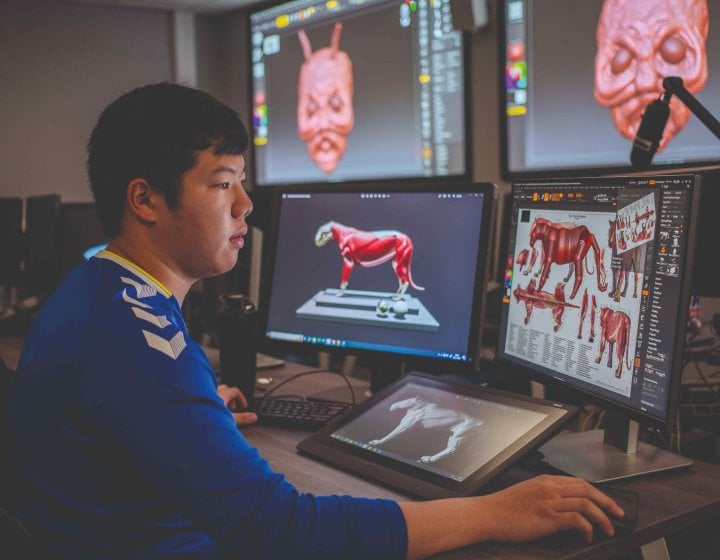
Post Production & Visual Effects BA(Hons)
Take your first steps in building a career on this industry-focused course, which covers all aspects...
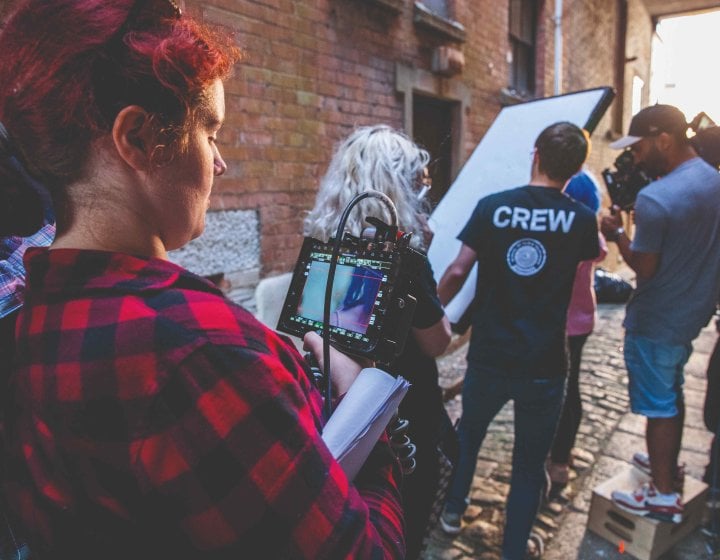
Film BA(Hons)
Develop your filmmaking abilities, honing your practice and deepening your understanding of cinema. ...
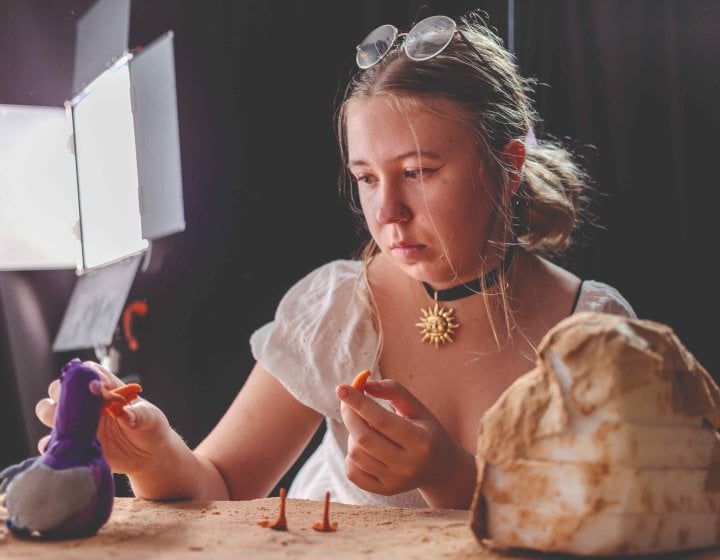
Animation BA(Hons)
Bring your ideas to life through the world of animation. We’ll support you in developing original,...
Open Days and events
From visiting campus to online application advice, get all the information you need about joining our creative community.
Find an event
